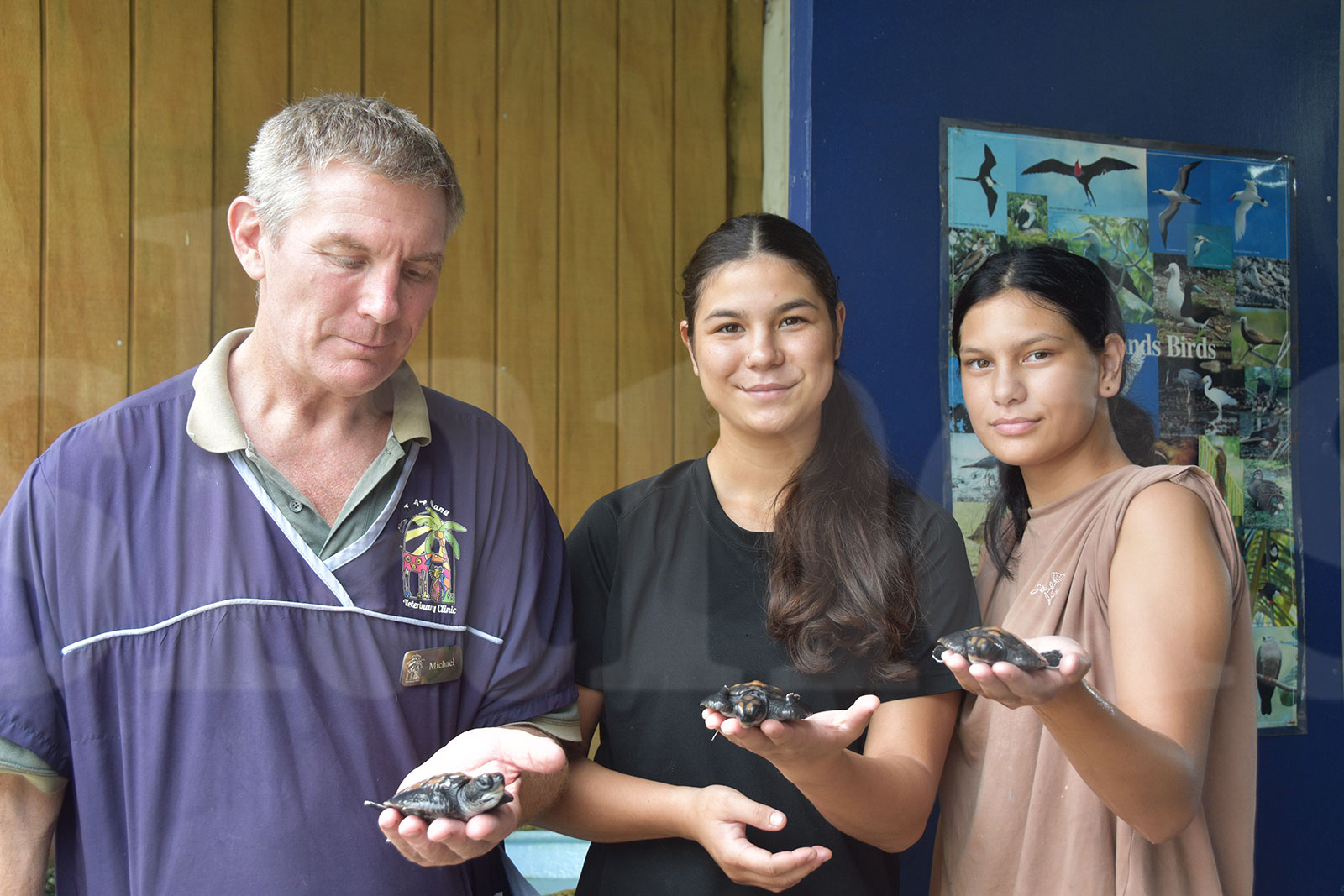Turtles are not pet material, says Te Are Manu Vet Clinic head
Thursday 15 June 2023 | Written by Losirene Lacanivalu | Published in Environment, National

Dr Michael Baer, Te Are Manu Vet Clinic medical director, takes a look at the baby turtles with Discover Marine and Wildlife Eco Centre Cook Islands staff Shaynee and volunteer Pipi Warren who are sisters. LOSIRENE LACANIVALU/23061423 /23061422
Turtles are not designed to be domesticated or kept as pets, says Te Are Manu Vet Clinic medical director Dr Michael Baer.
Dr Baer made the comments after three green baby turtles that were kept as pets were brought in from Manihiki this week.
The three hatchlings are being looked after by Discover Marine and Wildlife Eco-Centre owner Stephenie Jansen and her team in Arorangi.
Dr Baer said the turtles are quite small. After a close observation, the senior veterinarian said their biggest problem was the white spots on their back showing signs of calcium deficiency.
He said they have been given calcium supplements and that getting them into the sunlight will also help them, as they can start getting some vitamin D.
“We are hopeful they will make a full recovery and be released back into the wild where they should be,” Dr Baer said,
“Let’s see how they go with the shell recovery and when we are confident that they are healthy enough to go, Steph (Jansen) can release them.”
Dr Baer added: “They are not designed for being pets, they are aquatic marine animals, they swim the entire ocean, and they don’t belong in a tank. They will be looked after and will be released.”
Eco-Centre’s Jansen said: " We would like to keep the turtles until they are large enough to apply a flipper tag to them.
"If they are released while they are still small, they would very likely end up a snack for a large predatory fish. We have a reasonably large tank, but may not be able to keep them to the size required for tagging if they aren't able to cohabitate together once they get a lot bigger.
"We will be monitoring this as we go along and make a decision that is based on giving them the best chance at a normal, long and healthy life."
She has invited the public to make any name suggestions for the three turtles.
Meanwhile, Dr Baer said the clinic usually sees an ill turtle once every three or four months. They are brought in by Jansen or Jules Tamaariki, president of Te Ara O Te Onu – Turtle Conservation Society, who gets in touch with the clinic.
The public is also advised that if they see any turtle by the beach, they should not touch or move them, but should call the marine centre, Turtle Conservation Society, Ministry of Marine Resources or Te Are Manu.












































